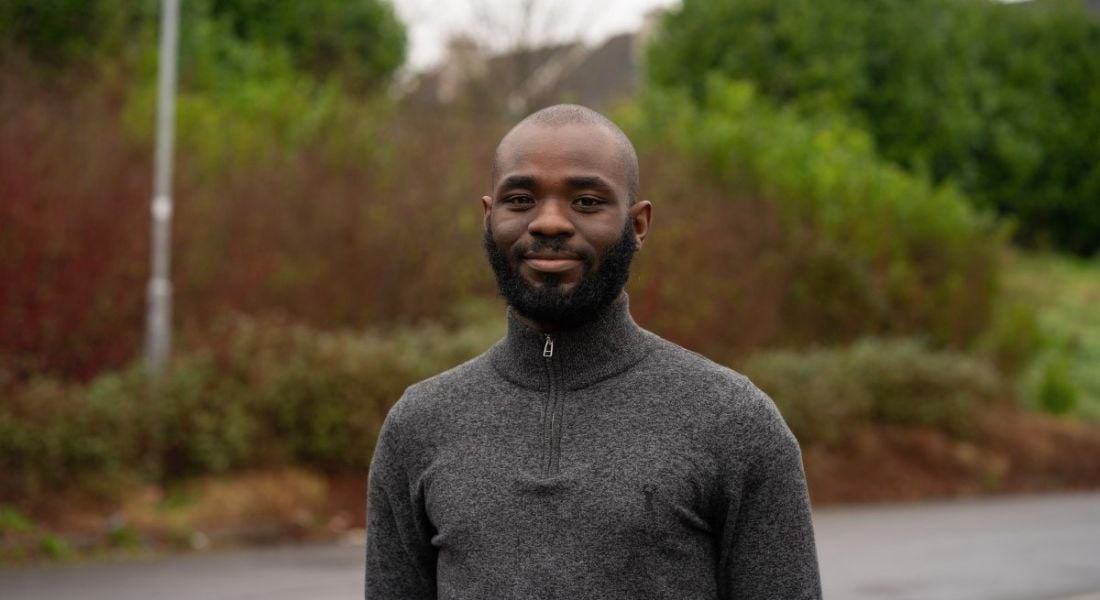From data analysis to validating equipment, Ireoluwa Olajitan talks about what his role at Johnson & Johnson entails and the skills he needs the most.
Ireoluwa Olajitan is a process engineer working in biotherapeutics product development at Janssen, which is part of Johnson & Johnson, having joined the company as a graduate.
In his role, Olajitan works on scaling various unit operations across the manufacturing process. His role also includes bioprocess simulation and modelling as well as equipment and process validation.
‘I can almost seamlessly fit into other departments with the skillsets I have developed’
– IREOLUWA OLAJITAN
If there is such a thing, can you describe a typical day in the job?
A typical day for me usually begins with check-in meetings with both my department and other departments for updates on all activities. The activities for the rest of the day normally vary day by day, which is great as it keeps me engaged!
Some of my typical activities would include reduced scale bioreactor studies, theoretical modelling of our processes, and equipment and process capability assessments for new product introductions.
Depending on phases during the year, data analysis and visualisation with the likes of Spotfire and Tableau comparing real-time batch data could also be a significant part in a given day.
What types of project do you work on?
A project I have particularly enjoyed working on was one that involved a technical transfer of a product from another site as part of an expansion of the Ringaskiddy site. This was both exciting and challenging as it was my first ‘big’ project after joining the graduate programme as a graduate process engineer.
The project involved using a series of theoretical calculations to model the current process, retrofit the process into our site and equipment, all while considering nuances in equipment and site differences before finally running a series of manufacturing trials, and eventually validation of the equipment and process.
Currently, I am working on an exciting plant modelling project. A reoccurring theme in most of my projects is that they are cross-departmental and are usually with colleagues across the globe.
In addition, I find the blend of desk work (data work, simulations, meetings) and hands-on work (study execution, process and equipment validation etc.) helpful in preventing any form of monotony.
What skills do you use on a daily basis?
One of the very first skills I developed was pressure and stress management. Coming straight from college into the industry, it can be difficult to maintain a healthy work-life balance as you transition from a student to a working professional.
My most used skill would be interpersonal skills. As part of my role, I am involved in numerous interactions across various departments on site, so it is key to be able to relate and interact with people from different backgrounds.
Acting as project lead on different projects has really highlighted the variety of backgrounds across the organisation and the ability to efficiently get the most from that variety is something I often employ.
Another key skill is effective communication. In college, during presentations, you’re often aiming to put equal time into the delivery, content and visuals of a project.
Having worked in the industry, I’ve learned the time and effort that should be put into delivery, content and visuals usually aren’t the same. My advice would be to make sure to know your audience and the message you need to convey.
What are the hardest parts of engineering?
The biopharmaceutical industry is an ever-evolving industry. Most of my work involves development and process improvement of our current processes and equipment.
As such, one of the hardest parts is the continuous awareness of the future capabilities of the industry, which are sometimes unpredictable.
While working on a project, there is always the possibility that an upgraded version or alternative process is being developed while we are in the development/execution phase.
Do you have any productivity tips that help you through the day?
Being present is very important. With multiple screens and everything being virtual these days. it’s easy to think multitasking throughout day is most efficient.
However, I find being 100pc focused on one task periodically is best, as you’re essentially using all of your energy and resources to perfect that task and can then move on to the other.
For example, when I know I have a specific block of meetings in a day, I set up to have no emails come in, no second screens or IMs during those times. I would say though, it is definitely easier said than done!
Another tip that is useful to help you get that extra bit of productivity into your day is enabling dark mode on all feasible apps on your laptop. I find this helps your eyes, especially if you’re on your laptop often, but also it has a weirdly calmer look than in bright mode, especially for emails.
What skills and tools are you using to communicate daily with your colleagues?
The Covid-19 pandemic has really highlighted the variety of virtual communication tools on offer. I would usually connect with my colleagues daily through Teams or Zoom for things like check-ins, project/department updates, escalations etc.
Also, for projects that require constant collaboration, Microsoft Whiteboard is always good for brainstorming sessions.
We also use virtual lunchtime/coffee chats to maintain a strong level of connectivity, regardless of a mix of people working from home or in the office.
How has this role changed as the engineering sector has grown and evolved?
It has been a relatively short amount of time from when I first joined Janssen as a graduate process engineer to now.
However, I have noticed that there have been some changes within the industry, specifically how it is beginning to hone in on the concept of ‘getting more with less’. This leads to what could be seen as an increasing need for modularisation and agility in the organisation, to prepare and be ready for what looks to be the future of the industry.
What do you enjoy most about working as an engineer?
What I enjoy most as an engineer is its versatility. I work in the biotherapeutics department, which is essentially our R&D department. But within that, my activities span across process improvements, process calculations, equipment modelling and simulation, data analysis and visualisation, equipment and process validation etc.
All those subject areas and more, although relatively dissimilar, are all within the scope of the skills you acquire and develop on the job. It feels like I can almost seamlessly fit into other departments with the skillsets I have developed.
What advice would you give to someone who wants to work in engineering?
My key advice would be to never narrow your job expectations. Engineering is an immensely wide field with a lot of transferrable skills.
Being relatively early in my professional career, I’ve already been lucky enough to have had the opportunity to work in different departments and building on the synergy within my current role.
This helps with networking and building experience, but also with my ability to apply the same skills to different problems, building on versatility and resilience. In short, don’t be too quick to say no!
10 things you need to know direct to your inbox every weekday. Sign up for the Daily Brief, Silicon Republic’s digest of essential sci-tech news.




